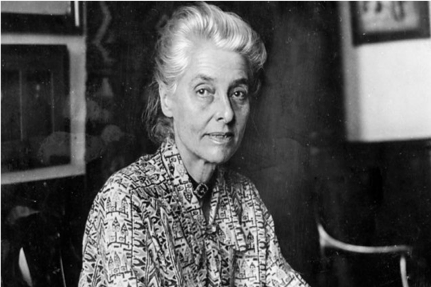Like Beatrice Potter, in the United Kingdom, within the struggle for women's equality, suffragism and the search for social reform, but in the first half of the 19th century, we must mention Harriet Taylor Mill, who, close to socialism, wrote numerous articles on women's rights and maintained an intellectual collaboration and a personal relationship with John Stuart Mill, economist, philosopher and defender of equality between the sexes.
Among the first feminists around the utopian socialism it is possible to name the saintsimonian Barthélemy Prosper Enfantin, Suzanne Monnier, Jeanne Deroin and Pauline Roland. Also the Owenians Frances Wrigth and Anna Doyle Wheeler.
Flora Tristán, a feminist who incorporated the class and gender perspective in her analysis of the social reality of her time, linked feminism and socialism by defending that women workers were also part of the working class that should fight for emancipation.
Related to contemporary suffragettes such as Mabel Atkinson, Emmeline Pankhurst (like Potter, a member of the Fabian Society) or Rebecca West, Beatrice Potter continued the political struggle after the achievement of suffrage in England. William Henry Beveridge succeeded in establishing the welfare state with his 1942 report, heir to that of Beatrice Webb.

Martha Beatrice Potter Webb
(Beatrice Webb)
Gloucestershire, United Kingdom, 22-01-1858 — Liphook, United Kingdom, 30-04-1943
Period of activity: 1887 — 1943
Geographical classification: Europe > United Kingdom
Socio-cultural movements
Late modern period / Contemporary period > Feminism > Suffragism
Late modern period / Contemporary period > Socio-political movements > Civil rights movements
Groups by dedication
Activists > Feminists (activists)
Activists > Suffragettes / Suffragists
Humanistics > Economists
Humanistics > Sociologists
Context of feminine creation
Review
Beatrice Webb Potter researched inequalities and socialism that intended to finish with labour exploitation from a young age. Along with her husband, she wrote about cooperativism, syndicalism and the decline of capitalism. They took part in the Fabian Society in which Beatrice and other women created a women's group that worked with trade unions, campaigning for divorce, prison reform, children welfare and, from 1911 on, women's suffrage. In 1905, Beatrice served on the commission to reform the Poor Laws and laid the foundations for the future "welfare system", proposing that a national minimum be established by law for citizenship, in health, housing, income, leisure and education.
Justifications
Biography
Beatrice Webb was the daughter of a rich businessman from Liverpool, so she always lived in a comfortable environment. Nevertheless, from a very young age she had intellectual interests and was interested in everything related to socialist ideas and anything that would serve to put an end to the indiscriminate misery and exploitation of labour that was characteristic of the industrial revolution. She was interested in cooperativism and in 1891 published a book entitled Cooperative Movement in Great Britain. She also took part in political economy, but cut off from Karl Marx's ideas, since she did not accept the Labour Theory of Value. In 1890, she met Sidney Webb, another intellectual socialist she married in 1892 and with whom she worked from then on. The Fabian Society, led by Beatrice and Sidney Webb, actively participated in the foundation of the British Labour Party, created in 1906, which soon became in a strong power. In 1922, it was the second most voted party, ousting the Liberals and establishing itself as an alternative government. Sidney and Beatrice participated in parliamentary committees and carried out projects to give social content to laws. Both of them combined their political and intellectual activity. From 1932, and after a visit to the Soviet Union, the Webbs took an important turn, after realizing the Soviet success in improving health services and educational standards, as well as achieving gender equality [...].
https://es.wikipedia.org/wiki/Beatrice_Webb (04/12/2021)
https://www.rethinkingpoverty.org.uk/beatrice-webb/ (04/12/2021)
Works
Cooperative Movement in Great Britain (1891).
The Wages of Men and Women: Should They be Equal? (1919).
The Decay of Capitalist Civilization (1923).
My Apprenticeship (1926).
Our Partnership (1948).
Bibliography
Beilharz, Peter and Nyland, Chris (1998). The Webbs: Fabianism and Feminism. New York: Ashgate Publishing.
Ramos Gorostiza, José Luis (2003): Beatrice Webb y su influencia como economista. Observatorio de la economía Latinoamericana in Contribuciones a la Economía, 27/03/2022, http://www.eumed.net/ce/
Wikipedia, 04/12/2021, < https://es.wikipedia.org/wiki/Beatrice_Webb>
Rethinking poverty, 04/12/2021, <https://www.rethinkingpoverty.org.uk/beatrice-webb/>
Didactic approach
The work of Beatrice Potter Webb can be presented in the subject of geography and history in 3rd of ESO in the block on human space. It is linked with the sections on the functioning of the capitalist economic system and social inequalities in the market economy.
In 4th of ESO in the subject of history in the block on the Industrial Revolution. After studying the impact of this revolution, the figure of Beatrice Webb can be used to understand the English political response to social inequalities and to discuss feminist demands.
It is also related to the subjects of economy and ethical values.